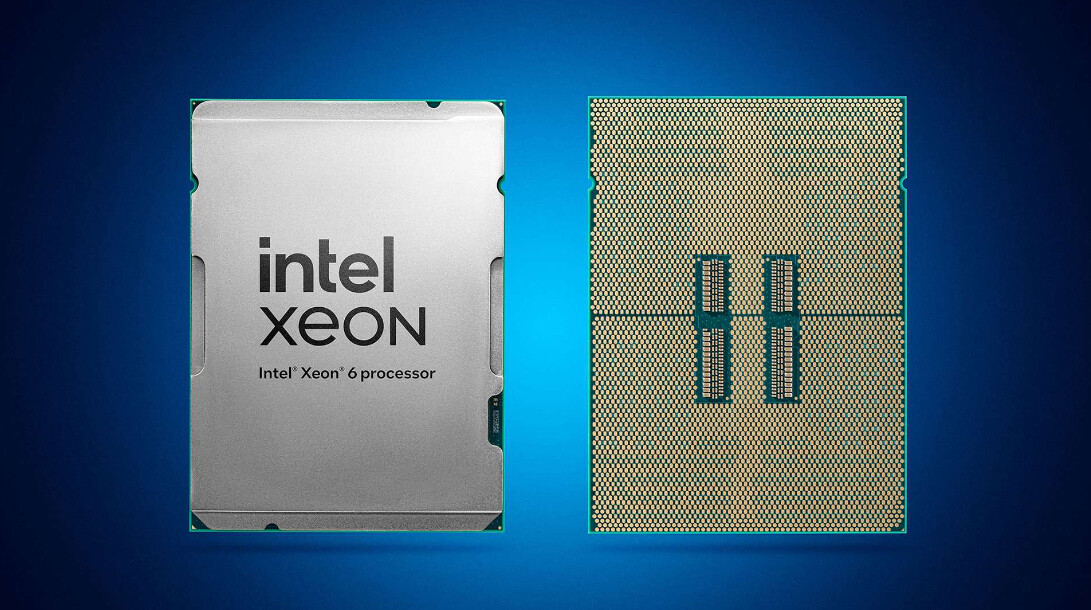Today, Intel launched its latest generation of Xeon processors. The company said the sixth generation of Xeon processors used in Gaudi 3 clusters will have a much lower price tag than competitors’ offerings.
Intel launched its sixth generation of artificial intelligence accelerators. The company said the new chips would be priced lower as it tries to regain its data center market customers. The new generation of Xeon chips will be available in two versions.
Intel Launches Sixth Generation Xeon Chips
Intel is offering Xeon chips in two different versions, a more powerful larger version and another one, an “efficiency model,” which, according to Intel, is a replacement for its older generation processors.
Intel’s Gaudi systems consist of multiple chips as processor kits, fine-tuned to handle AI model training processes. Pat Gelsinger, CEO of Intel, said Dell and Inventec Corp will offer the Gaudi system racks.
Also read: Intel Develops World’s Largest Neuromorphic Computer
The company said that data centers will need about 67% fewer racks to attain the computing power of their second-generation processors and that with the efficiency model. The efficiency model is designed to perform database calculations and serve media and websites. Intel mentioned in an announcement that,
“A kit including eight Intel Gaudi 3 accelerators with a UBB (universal base board) will list at $125,000, estimated to be two-thirds the cost of comparable competitive platforms.”
The company estimates that the offering is more attractive than competitors. The “efficiency” Xeon processors are available for purchase from today, Tuesday, June 4. Alternatively, the larger and more powerful “performance” model is due in the third quarter. Intel also plans to offer additional versions of Xeon chips next year.
Pat Gelsinger Takes a Direct Shot at Jensen Huang
At the Computec 2024 event, Intel’s rivals AMD and Qualcomm also touted their benchmarks to show their chips are better than their existing models. Intel said that Each Gaudi 3 cluster by Intel consists of 8,192 chips.

According to the company estimates, it will speed up the AI training process by 40%. Intel was compared to the H100 GPU clusters of equal size by Nvidia. It also said that Gaudi 3 systems would be two times faster than Nvidia H100 accelerators for inference jobs.
Intel’s CEO Pat Gelsinger took a direct shot at Nvidia’s Jensen Huang, who earlier said that traditional processors like Intel’s are running out of steam. Gelsinger said,
“Unlike what Jensen would have you believe, Moore’s Law is alive and well.” Source: Bloomberg.
Gelsinger said that Intel will play a major role in AI advancement as a leading provider of semiconductors. He said that he thinks of this AI wave as the internet 25 years ago. Gelsinger sees AI as the fuel that will drive the semiconductor industry to $1 trillion by 2030.
Competition Erodes Intel’s Market Share
Intel’s sixth-generation Xeon processors were delayed by almost a year because the company was trying different manufacturing processes. Chip giants like Nvidia are using third-party manufacturers like TSMC for their chip manufacturing.

Under Gelsinger, Intel has invested heavily in building several factories for manufacturing semiconductors. This new generation of chips is important for Intel because it lost a significant chunk of data center market share to Advanced Micro Devices (AMD).
Intel’s tinkering with the manufacturing process gave AMD a chance to grab more business as it relies on Taiwan Semiconductor Manufacturing Company (TSMC) to manufacture its processors.
Also read: Huawei Fills Nvidia Gap in China With Local AI Chips
According to Mercury Research, AMD now holds 23.6% of the data center market share. Intel’s share of the data center market declined by 5.6% to 76.4% over the past year, according to Reuters. Intel’s prominent offering during this time was its x86 chips.
Intel’s sales have stopped sinking as of now, but analysts predict that it will take time for a major rebound. Market observers estimate that Intel will have $20 billion less revenue than what it had in 2021. According to analysts, Nvidia and AMD are better aligned to take advantage of tech giants’ AI spending.
Cryptopolitan reporting by Aamir Sheikh





